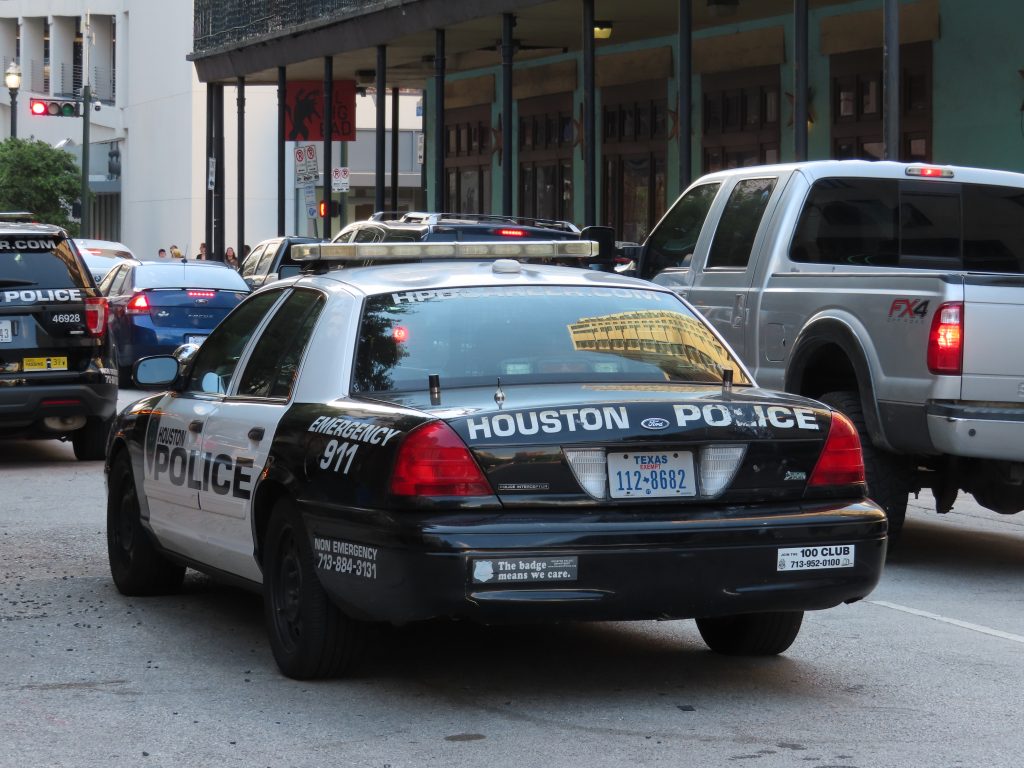
Image Credit: Jason Lawrence, CC BY 2.0, via Wikimedia Common
By Saul Roth
Family Stress
Perhaps more than ever, families are experiencing stress. Many families have both mother and fathers working to support the family. Sometimes the rotating shifts can relieve some stress, as the spouse that is the officer can watch children during the day and during the week. Howard et al. (2004), however, note that shift work will exclude officers from being at family commitments on weekends and evenings. This is a cause of stress, but in the earlier years might be offset by the children being supervised by a parent during work hours.
Officers that are married may experience less stress in the work place, at least when the marriage is not suffering difficulties. The opposite can be true, however, if the officer is suffering marital discord. If the officer is thinking about his relationship at work, it can cause him or her much stress, as trying to handle others’ problems as well as one’s own can be overwhelming. Janick and Howard (1994) state that the suicidal ideation rate for officers involved in marital problems is 4.8 percent. To add to this difficulty is the possibility of arrest and how it will affect the officer. People in most positions do not have to worry about suspensions and dismissal if arrested for domestic violence. Police officers do and this can add a tremendous amount of stress to an officer with domestic difficulties.
My interview with the anonymous Nassau County Police Department employee showed that all the police suicides since he has been in his position have been in regards to domestic situations. I am aware of two suicides that involved infidelities by the police officer and police officers spouse. The tours of duty, the stresses of the job could have led to the either the spouse or the officer to engage in domestic difficulties and finding comfort with other individuals.
Alcohol Abuse
In addition, alcohol abuse is a problem on the police department and, of course, society at large. The officer has to enforce laws that many times involve the use of alcohol. This seems to be hypocritical to a critical public. A study by Richmond et al. (1999) suggests that 48 percent of male officers in Australia abuse alcohol. From my experience in the police department, however, I do not believe the rate is near this in the United States. Violanti’s (2010) study had 11.5 percent of officers drinking an average of seven alcohol drinks on a typical day. I believe this study to be flawed. I have observed new and single officers consuming more alcohol than most senior officers. I noticed the younger married officers not drinking with the single officers as often. I did feel isolated as a new married police officer in the NYPD. The rookie officers would go out to bars after the 4 to midnight shifts and I would go home. Most officers, as they progress in the police department gain more responsibilities at work and home, and reduce their consumption of alcohol. Officers also become more mature and adhere to their responsibilities. The problem arises in the young officers that abuse alcohol and those that become alcoholics and continue abusing alcohol as they progress in age. There are officers that use alcohol to self-medicate from the stress on the department.
Conversely, a study by Lindsey et al. (2008) has 70 percent of the officers not drinking alcohol at all or only once per month. This study also seems flawed to me, as I believe officers were concerned of difficulties with their respective police departments if they answered truthfully. An earlier study by Reiss (1971) has between 3.2 percent and 18.4 percent of officers consuming alcohol on duty. The rate has a wide gap and it is possible that this occurred in 1971. From my experiences in police departments, I do not believe there is the same amount of alcohol abuse that occurred in 1971.

Recent Comments